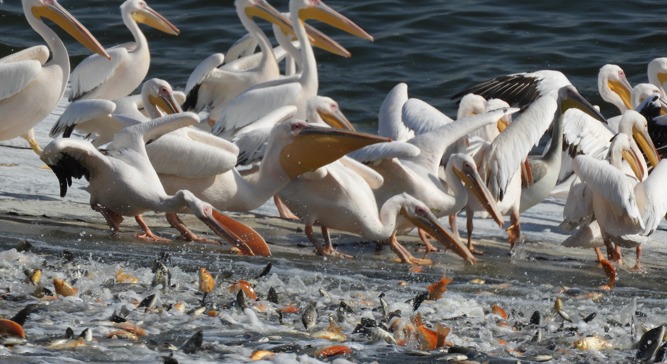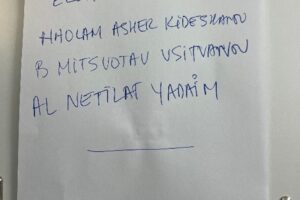Which holiday traditions mean the most to you?
When it comes to celebrating the Jewish holidays, one of the most important aspects is tradition. Every holiday has its own foods, rituals, and practices. These traditions are a way to explore our past while preparing for our future. Tradition ensures that the history, culture, and legacy of the Jewish people live on.
An incredible instance of a tradition that has endured throughout the ages can be found on the island of Curacao. Here, one can see a Hanukkah Menorah that has been used every year for over three centuries.
Congregation Mikve Israel-Emanuel on Curaçao has the honor of housing the oldest continuously used hanukkiah/Hanukkah menorah in the world. It was first lit in 1716 and has been used every year since then, over 300 years of holiday celebrations.
The menorah was donated to the Jewish community of Curaçao in 1716 by Jacob Yesurun Henriques. It bears the inscription “In the year, ‘beaten for the light’ to kindle an eternal flame,” consecrated by Jacob de Ephraim Jesurun Henriques to the Holy Congregation of Mikve Israel.
The menorah is made of ceremonial silver, crafted by Dutch silversmith Pieter Van Hoven from Amsterdam. It is inlaid with floral and leaf motifs, a popular style at the time and a particular specialty of Van Hoven. Silver working was an incredibly popular craft across Europe in the 1700s and Congregation Mikve Israel-Emanuel has an assortment of impressive examples of this artform. Furthermore, the menorah is unique for its use of oil lights instead of candles.
In 1703, the Jews of Curaçao established a new synagogue in the city of Wilemstad. It was later demolished in 1730 to make room for an even bigger one. In 1732, temple Mikve Israel was completed and remains the oldest, continuously operating synagogue in the Americas. Their menorah serves as a reminder of the congregation’s origins, as it was used both in the new and the old synagogue.
During Hanukkah, the menorah is hung on the synagogue’s southern wall. Originally, it was hung on a simple hook, but as the decades passed, additional platforms and supports were built to secure the menorah and prevent it from falling.
During the rest of the year, the menorah rests in a display case in the Jewish Cultural Historical Museum for all to witness and enjoy. When the holiday arrives, however, it is placed back in its special space so it can again illuminate the synagogue for eight nights . Throughout the holiday, the synagogue upholds a tradition of reserving the menorah-lighting for the children. Additionally, families are encouraged to bring their own menorahs to light in the synagogue, resulting in a cross-congregation symphony of lights.
It is truly heartwarming to see a community carry on such a beautiful tradition for so long. By coming together as a community to light the same menorah year after year, the Jews of Curaçao are both literally and figuratively shining an eternal light, cutting through the darkness, and carrying on the tradition of their people.
Further reading:
You can learn about the world’s oldest etrog and the lessons you can learn from it here.
You can read more about the history of the Jews of Curaçao here.
You find my recipe for Curaçao style charoset here.
You can watch me talk about the incredible Jewish community in Curaçao here:

Andy disembarking from the Divina
I would like to give a special acknowledgement to the MSC Divina. September 2019, I disembarked from the Divina to go to the Great Synagogue of Rome. In March 2020, I went from the ship to see the Mikvé Israel-Emanuel Synagogue in Curaçao. Truly the ship lives up to its divine namesake, helping me to see some of the most historic, spiritual, and moving synagogues in the world all while providing unmatched hospitality. I can’t wait to see what wonders the MSC Divina will take me to next!









